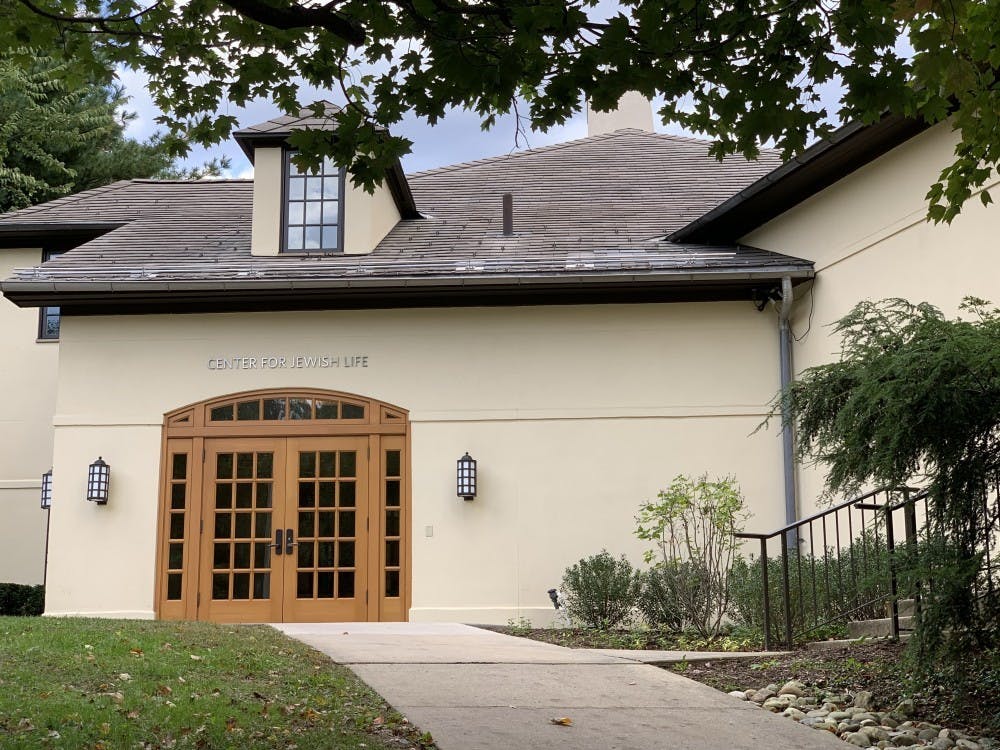One day in high school, my mother was helping me wash my hair and pulled a large clump of hair out of my scalp. Bewildered, she asked me what was going on. I had to tell her about how I was burdened by stress from the daily harassment that I received from my peers. It was always at lunch, when the most people were around. Someone would point at my argyle socks or mention my use of proper English and then everyone would laugh. It had gotten so bad that my mother had pamphlets of neighboring private schools already laid out on the kitchen table at dinner. I stuck it out, though, because I thought that there was a chance that I could be like one of the cool kids some day. They dressed in the latest trends, spoke in slang, got invited to all the parties and always had girlfriends or boyfriends. At least when I went to college, I thought, I could create my own individuality. I could start fresh, where no one would know my history. Unfortunately, Princeton made me discover that "cool" was directly synonymous with being in a selective eating club.
I knew from freshman year that I wasn't much of a party person. If I went out on the street, I'd only be there for about an hour or so before going back to my dorm. I never felt like I was missing out on anything. Every time I went to a party, my high school fears returned: my clothes weren’t nice enough, I wasn’t pretty enough, I didn’t know enough people and most of all, I couldn’t relax because I was worrying too much. Nevertheless, I was convinced that I had to be in a club. Being independent or in a co-op was not an option for me.
The Street is the most publicized social outlet for upperclassmen, and people are well-informed about the different personalities of all the clubs: artsy, bohemian, political, diverse, southern, rich, athletic and more. The plethora of pictures from formals bombarded my Facebook feed every fall and spring. No one wants to feel left out.
There are some Princetonians who have never been interested in this scene, because the entire process seems unfair. In a sense, it is. It can only take one person in the club who has clout to say something bad about you, and then it's over. No matter how friendly you are, how many extracurriculars grace your resumé, or how many people you know, you are liable to be rejected from the club, or “hosed.” I learned that the first and only time it happened to me. It was a huge blow to my self-esteem because I couldn't understand why it happened. And furthermore, the dream of recreating my identity as someone cool had shattered.
I did eventually end up in an eating club during my junior year and met great people there. But deep down, I felt like something was missing. The club itself was fine: great food, friendly people, interesting parties— and by this rationale alone, I could not understand why I still lacked something inexplicable. I didn't feel like I had a deep connection with anyone besides those who I met before I gained entrance into the club, ironically. Besides that, the majority of my friends were on independent meal plans, and it was hard trying to schedule a meal to see them. With the exception of formals, I never stayed at the parties for too long because I always felt anxious because I wasn't making out with anyone or I dressed too conservatively. Even though I was in a popular club, I still didn't feel that way. I didn't fit the level of prestige that I bought into.
Then, I realized that I was never supposed to be there in the first place. You can add as many labels to your name and reputation, but at the end of it all, when you strip them all away, you have to face yourself. You can only run from it for so long. Although I could feel like I had a sense of confidence because I was in a bicker club and people always asked me to reserve spots for them at the next party, it ultimately did not matter. I am still that awkward girl who flakes out at parties. I am still that girl who wears the argyle socks and plaid skirts. But the difference between my years as an underclassman in both high school and college is that I now own up to these characteristics. Right now, I'm on an independent meal plan, and although my social life consists of small dinner outings and dorm room powwows, I have the freedom and peace of mind that I didn't have before. I learned to not deny who I really was, and that realization changed the tide of my self-esteem. I was too busy looking at everyone else for security instead of looking within.
We do ourselves a huge disservice when we try to pigeonhole all that we are into institutions, whether great or small. And at the same time, it is a disservice to pigeonhole others when they tell us which club they are in or which organizations they are involved in. To all students who are bickering this week, I say good luck. Some of you will get through, but many of you will not. I just hope that you don’t try to use an eating club to make you who you already are. I never became one of the "cool kids" because that idea was nothing more than a projection of low self-worth. I still admire people for their coolness, but I'm in the process of cultivating myself to be the best— and the “coolest”— that I can be.
Morgan Jerkins is a comparative literature major from Williamstown, N.J. She can be reached at mjerkins@princeton.edu.







